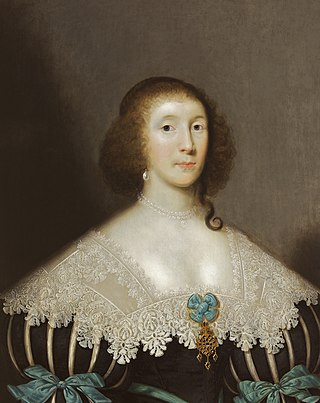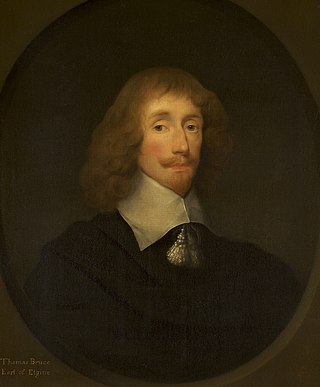Related Research Articles

William Hastings, 1st Baron Hastings KG was an English nobleman. A loyal follower of the House of York during the Wars of the Roses, he became a close friend and one of the most important courtiers of King Edward IV, whom he served as Lord Chamberlain. At the time of Edward's death he was one of the most powerful and richest men in England. He was executed following accusations of treason by Edward's brother and ultimate successor, Richard III. The date of his death is disputed; early histories give 13 June, which is the traditional date.

Henry Folliott, 1st Baron Folliott (1568–1622) was an English soldier in the Irish army. He fought in the Nine Years' War and then in the suppression of O'Doherty's rebellion at the Siege of Tory Island.

John Harington, 1st Baron Harington of Exton in Rutland, was an English courtier and politician.
Sir James Harington of Exton was a 16th-century English public servant who fulfilled a number of legal, legislative and law enforcement duties and was knighted in 1565.

Edward Cecil, 1st Viscount Wimbledon was an English military commander and a politician who sat in the House of Commons at various times between 1601 and 1624.
Sir William Godolphin (1567–1613), of Godolphin in Cornwall, was an English knight, soldier, and politician who sat in the House of Commons from 1604 to 1611.

John Harington, 2nd Baron Harington of Exton, of Burley-on-the-Hill, Rutland was a young English peer and politician. He was the Lord Lieutenant of Rutland and Baron Harington of Exton.
Isabella Markham, was an English courtier, a Gentlewoman of the Privy Chamber of Queen Elizabeth I of England and a personal favourite of the queen. Isabella Markham was muse to the court official and poet John Harington, who wrote sonnets and poems addressed to her, before and after they married. Thomas Palfreyman dedicated his Divine Meditations to her in 1572.

Sir Richard Moryson was an English soldier and politician who sat in the House of Commons from 1621 to 1622.
Sir Francis Roe, alias Rooe, was an English-born infantry officer who served in Ireland during the Nine Years' War, obtained grants of land during the Plantation of Ulster, and became a member of the Parliament of Ireland and mayor of Drogheda.
John Frescheville, 1st Baron Frescheville was an English soldier, landowner and politician who sat in the House of Commons at various times between 1628 and 1665 when he was created a peer and then sat in the House of Lords.

Thomas Bruce, 1st Earl of Elgin, 3rd Lord Bruce of Kinloss, of Houghton House in the parish of Maulden in Bedfordshire, was a Scottish nobleman.

Sir Henry de Vic, 1st Baronet was a Guernsey-born courtier.
Bridget Markham (1579–1609), was a courtier to Anne of Denmark and subject of poems.
Theodosia Harington, Lady Dudley was an English aristocrat who was abandoned by her husband, but maintained connections at court through her extensive family networks.

Sir James Harington, 1st Baronet (1542–1613/4) of Ridlington, Rutland, was an English politician.
Elizabeth Harcourt, Courtier to Anne of Denmark.
Sir Richard Dyer of Staughton, was an English courtier, soldier, and landowner.
Andrew Noel or Nowell was an English landowner and Member of Parliament.

Anne Keilway was an English courtier.
References
- ↑ Ian Grimble, The Harington Family (New York, 1957), p. 143.
- ↑ Clare Carroll, Circe's Cup: Cultural Transformations in Early Modern Writing about Ireland (Cork, 2001), pp. 73-4: Ian Grimble, The Harington Family (New York, 1957), p. 130: Thomas Park, Nugae Antique by Sir John Harington, vol. 1 (London, 1804), pp. 267-8: Orlando Furioso in English heroical verse, by Sr Iohn Harington of Bathe Knight (London, 1607), book 12 note.
- ↑ Miranda Kaufmann, Black Tudors (London, 2017), p. 257.
- ↑ Ian Grimble, The Harington Family (New York, 1957), p. 203, Grimble states Lady Frescheville's father was William Harington of Bagworth.
- ↑ Harry Bristow Wilson, A History of the Parish of St. Laurence Pountney, London (London, 1831), pp. 112, 133, 238, 240.
- ↑ Ian Grimble, The Harington Family (New York, 1957), p. 143, the identity of this person may be doubtful.
- ↑ Ian Grimble, The Harington family (New York, 1957), pp. 152-3.
- ↑ Ian Spink, Henry Lawes: Cavalier Songwriter (Oxford, 2000), pp. 14, 20.
- ↑ Virginia C.D. Moseley & Rosemary Sgroi, 'HARINGTON, Sir William (c.1590-1627)', The History of Parliament: the House of Commons 1604-1629, ed. Andrew Thrush and John P. Ferris, 2010.
- ↑ James Alexander Manning, Memoirs of Sir Benjamin Rudyerd (London, 1841), pp. 26, 143-4.